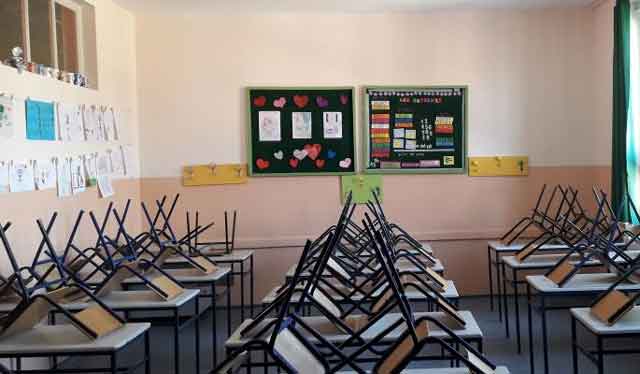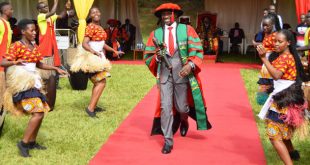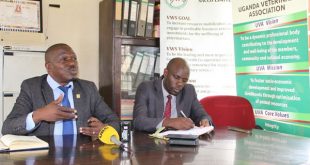
Kampala, Uganda | THE INDEPENDENT | There is growing anxiety on the proposed re-opening of educational institutions, which were closed in March, to protect the over 15 million learners in high-risk concentration centres, against the COVID-19 threat.
At that time of the closure, the idea was that learners could report back to school after 32 days. It is now coming to seven months and schools are still under lock and key, while parents and teachers wait for government’s announcement; to open or not to open.
Uganda’s academic year normally runs from February to November covering 260 days of curricula and co-curricular activities, assessment, and national examinations. Under this arrangement, the system leaves out 104 days for holidays. Around this time, the children would be reporting for the third term of school, which is normally shorter than others.
But, due to the lack of a clear continued learning process during the lockdown, learners lost part of the first term and the entire second term. Can the lost time be recovered within the remaining time?
President Yoweri Museveni had earlier on said that the big announcement on schools will be made before September. But no announcement has come up, halfway through the month. To many, it appears that the government has already decided that 2020 will be a dead year even without a formal declaration. Josephine Ndagire, a veteran teacher and school administrator says that even if the schools were opened today, a lot of time has been lost, and children cannot just move forward.
“Although we want schools reopened, you don’t just wake up and reopen after seven months and things flow normally. Ndagire said, adding that under the current situation, it would take over a month to get parents and learners ready for resumption.
Issa Matovu, another educationist notes that with or without declaring a dead year, it is already late to consider this year, given the fact that the activities that needed to be done can’t be fitted into the remaining time.
Matovu says that finalists need time register, teachers need time to harmonise the syllabus and the examinations body needs time to organize the examinations. He also points to the need for resources by the government, schools, and parents, yet the learners equally, need to be mentally prepared to return to school.
Matovu advises the government to ‘swallow its pride,’ accept reality and formally call off the year so that they refocus and direct all the resources on fresh reopening next year without making things complex.
However, Professor Fred Masagazi Masaazi, the Principal of the College of Education and External Studies at Makerere University acknowledges that there is confusion within the public domain and that the education ministry needs to have a thorough evaluation before any decision is taken.
To him, any of the decisions taken should consider the fact that these are not normal times and that nobody knows when the situation will return to normal. Professor Masagazi says that if the government decides a reopening, the basic idea should be supporting institutions to get prepared.
Professor Isaiah Omolo Ndiege, an educationist and chemist, also thinks that the government should reconsider the idea reopening of schools, especially now that the country has an upsurge of COVID-19 cases.
Based in western Kenya, the former Kyambogo University Vice-Chancellor notes that although there are draft standard operating procedures, they cannot be enforced when the institutions do not have space and sanitary facilities.
Professor Ndiege says that several critical issues have not been discussed like what will happen to schools and learners in border districts. To him, all this needs to be well thought out without rushing. He further points out that without having a good strategy, the schools are fated for confusion and the possibility of closing shortly after reopening.
In recent weeks, leaked working documents and letters from the Ministry of Education have pointed to the possibility of reopening schools effective September 21. One of the leaked letters had been written by the Education Minister Janet Kataha Museveni requesting their counterparts in finance to release capitation grants to enable schools to prepare for the ‘agreed phased reopening’.
The other working documents that the Ministry of Education plans to adopt, should schools reopen, are talking about rewinding the clock to term II. However, to date, there is no official communication to the development.
On Saturday, the Education Ministry Spokesperson Patrick Muinda advised the public to disregard the talk on reopening schools, saying that information will be issued by either the Minister of Education and Sports or the Permanent Secretary or any authorized person at an appropriate time.
However, Dr Tony Mukasa Lusambu, the Commissioner Basic Education says that they are currently conducting a routine inspection of schools to see their readiness before any pronouncement is made.
Governments around the world are slowly reopening schools as health experts say it’s vital for children to resume education having put in place standard operating procedures. Different surveys have indicated that school closures have had negative effects on the education and wellbeing of many children and teenagers.
********
URN
 The Independent Uganda: You get the Truth we Pay the Price
The Independent Uganda: You get the Truth we Pay the Price



I think the government should come out and tell the public exactly what their decision on reopening is, we are really tired of this kind of foolery coz people have things to do and so need to focus but basing on the government decision